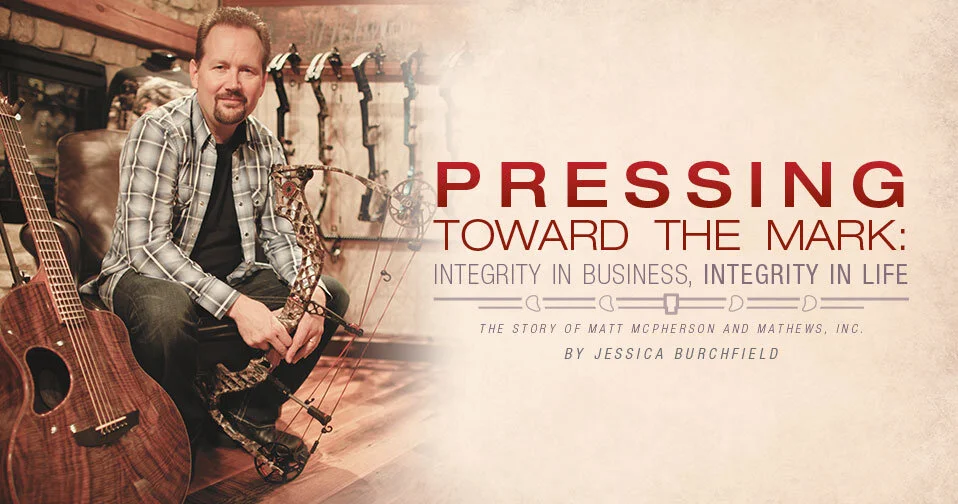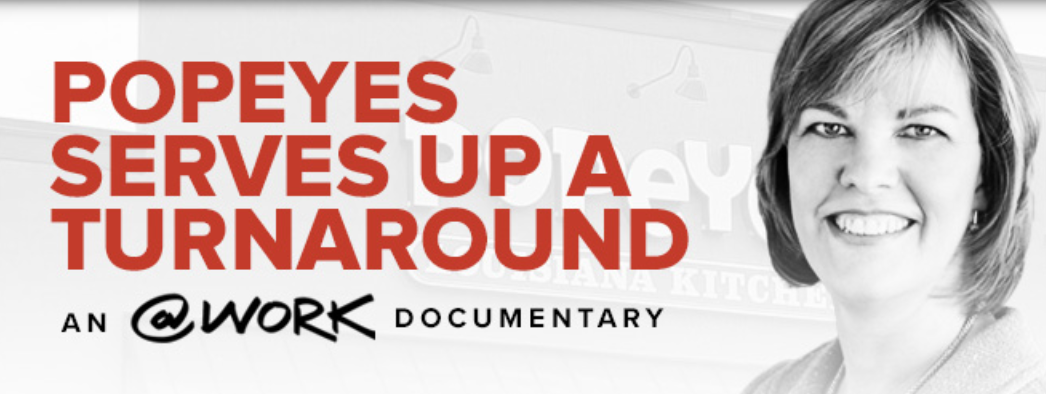Here I Am
This article was originally published here by Convene
— by Greg Leith
When God calls our name as leaders, He is not looking for a weak response of “I’m here”. He’s not interested in the bored or quiet “here” that we sometimes utter when we’re called upon to sound off in travel groups or classrooms. God is looking for us to say “Here I am” with gusto.
Though the world may be shaking, our rooted faith in God grounds us as leaders so that we can respond with readiness, strength and courage. God calls us to follow Him and be his apprentices. He calls us to love others (the Great Commandment), he calls us to tell others about him (the Great Commission), and He tells us to subdue the earth (the Cultural Mandate).
Our response to all these requests from God is to say, “Here I am!”
In Hebrew, it’s all one word. It’s the word Hineni. In the Torah, each time the word Hineni is used, it signifies a turning point, a potentially life-changing moment requiring decision, action and resolution. It means you’re saying to God, “I am absolutely focused on your desires for me. I am here waiting for your direction.”
It’s our response to God’s call on our lives. It’s our way of saying, “Thank you for choosing me, saving me, giving me a purpose in life and giving me hope of eternity.”
The Lord called six leaders in the Old Testament of the Bible. Abraham, Jacob, Moses, Samuel, Isaiah and Ananias. Each one of them said, “Here I am!”.
Let’s focus on Abraham for a moment. He actually responded “Here I am” three times.
HINENI #1
In Genesis 22:1 the writer notes that, “After these things” (these good things that had been going on in Abraham’s life), “God tested Abraham and said to him, ‘Abraham!’ and Abraham said, ‘Here I am.’
Abraham did not know what God wanted. He was just available. Little did he know a test was coming.
That’s all of us as leaders. We said yes to God at some point and we might have thought we knew where our life was going, but as the years moved along, things changed. Are you still saying, “Here I am God!” or are you maybe saying, “God? Where are you?”.
HINENI #2
God tells Abraham to take his son Isaac and sacrifice him as an offering to God. Woah. What would you do with those instructions? Abraham obeys and sets out on a three-day trek, walking silently with his son Isaac towards the mountaintop. At one point in the climb, Isaac, calls out, “Father?” and Abraham responds again with these famous words: ‘Hineni b’ni’ – “I am here, my son”. This time Abraham’s response is not out of awe for God, and perhaps not even out of readiness to respond. This Hineni comes from a place of love. In other words, Abraham may have been thinking in his mind, “I know it’s dangerous, and if God does not give me new instructions, this is not going to go so well. Yet, Abraham tells his son, “I am here for you”.
We all want to love the people we work with like that. We want to say, “I know it’s rough right now, but I am here”.
HINENI #3
Abraham has ascended the mountain, just as God instructed, and he bound his son, Isaac, the one he loves, on the altar piled high with wood. This is in a very different place. A place of, “This is real, this is pretty much crazy, God I hope you have a plan B!”. Abraham has raised a knife to slaughter his son, when in the nick of time, an angel’s voice calls to him twice by name, “Abraham! Abraham!”. I imagine Abraham’s whole body might have shook as he began to cry and wonder if maybe he did not have to sacrifice his only son.
He responds, “Hineni – Here I am”. Abraham is saying “Here I am” from a deep place of suffering. He is being obedient and dedicated to his task, but what he sees before him is anguish and confusion. The angel responds back, “Lay down the knife; don’t hurt the lad in any way, for I know that God is first in your life—you have not withheld even your beloved son from me” (Genesis 22:12 TLB).
Whew! I imagine the father-son embrace lasted a very long time.
I imagine as a leader or as a follower in 2020, in the midst of a global pandemic called Coronavirus, you are experiencing some kind of hardship. Maybe you’re even shaking. Are you being obedient to what God is calling you to do?
The Hebrew prophet Isaiah is very clear. We too are called by God, just like Abraham.
Isaiah writes in his book, chapter 43, verse 1, “I have called YOU by name”. Take a minute and go back and read that out loud with your name in it. Think about it for a moment. When God calls, as leaders we must say, “It’s me Lord, here I am”. The amazing news is that God calls back to us when we are available to him. Our creator, the same power that created the earth, says to us, “I am here for you”! This means we don’t have to lead alone in tough times. Isaiah 58:9 tells us, “Then you shall call, and the Lord will answer; you shall cry, and He will say, ‘Here I am’.
This is a time for courageous leadership, for peace-bringing presence, for hope-filled words, and biblically-leaning wisdom. It’s a time for courage-filled truth-telling, and sometimes it’s a time for no talking, just weeping together with those who have lost their business, lost loved ones, or lost jobs.
Are you in? Are you willing to say, “Here I am!”? If you are, drop me a short or long email at gleith@convenenow.com
While you’re at it, grab a 3x5 card and on one side write, “Here I am” and on the other side, write
“DO NOT FEAR”. Stick it up somewhere where you can see it every morning and evening.
By the way, the Bible says “do not fear” 80 times! I’m pretty sure God knew we would need his reassurance! Sometimes, fear is a strategy of Satan, but thanks to God, your power is much greater than Satan’s. Look at how he reassures us as descendants of Abraham.
“But you, Israel, are my servant. You’re Jacob, my first choice, descendants of my good friend Abraham. I pulled you in from all over the world, called you in from every dark corner of the earth, telling you, ‘You’re my servant, serving on my side. I’ve picked you. I haven’t dropped you.’ Don’t panic. I’m with you. There’s no need to fear for I’m your God. I’ll give you strength. I’ll help you. I’ll hold you steady, keep a firm grip on you” (Isaiah 41:10 The Message).
God is asking you the same question he asked Adam; “Where are you?”. There is only one God-honoring answer – “Hineni – Here I am!”
Related articles
What does it look like to put God at the center of your business? When we see our workplace as an opportunity to bring hope and life to people that desperately need it, it changes everything. Our job is to live faithfully and obediently wherever He has placed us.
Let me introduce you to Tim. Tim was the ideal model for anyone asking how to be a great car salesman. And he exemplified the two traits I think all business people should have regardless of industry.
BAM is a relatively new term, but is based upon biblical concepts. The BAM concept is holistic in nature and content; it is built upon the truth that God has the power to transform people and communities spiritually, economically, socially, and environmentally.
God’s revelation of Himself to us in the Word isn’t an adapting of Himself to us, it is rather a revelation of who He is that includes a call for me to repent, believe and follow, by the work of the Holy Spirit.
This image of planes hurtling down a carrier’s swaying deck and launching into the open sky is precisely what graduation is all about.
The only WHY that can truly sustain work and ministry simultaneously is the only purpose for which we were created—to glorify God. And we glorify God by loving what God loves.
What if we could have healthy debates in which we first have to clearly articulate the position of the other side? What if we sought common ground—rather than standing our ground?
Christians in the business world have a dynamic opportunity to utilize this model and have far-reaching influence into the greater global culture. Business has an important role to play in shaping societies, communities, and households. In short, business and arts are callings that shape culture.
Imagine the possibilities if generations of entrepreneurs and scholars were deeply rooted both in their confidence to integration their faith in their work, and also in a community of believers who supported them in it!
Ministry in word is a foundational mark of the Faith Driven Entrepreneur. Here’s some inspiration for starting a workplace faith community.
So maybe you are headed toward starting the next unicorn company, but right now the Lord has you tending the flock. Maybe you’re called to serve the boss that’s got a temper, and while you know you’re next in line for his job, you honor his leadership in the waiting.
I have become convinced that humility is God's secret weapon to thwart the ultimate enemy of pride and bring pockets of heaven to earth. If I can focus on how Jesus must increase and I must decrease, then God will, without fail, use me for his purposes. Easier said than done.
You see, HOPE Coffee is a coffee company with a heart for missions. With roots as a ministry to coffee farmers and families who live in their communities, HOPE Coffee is devoted to meeting needs while sharing the hope of Jesus.
“Whatever you do, eating or drinking or anything else, everything should be done to bring glory to God.”
Lecrae Devaughn Moore — better known simply as Lecrae — has always valued his independence.
What if faith-driven entrepreneurs, not just in the U.S. but worldwide, went all-in to commit their creative talents and abilities to advance God’s kingdom and be the agents of change for justice, equality and eradication of poverty?
When God calls our name as leaders, He is not looking for a weak response of “I’m here”. He’s not interested in the bored or quiet “here” that we sometimes utter when we’re called upon to sound off in travel groups or classrooms. God is looking for us to say “Here I am” with gusto.
A modern day Christian Renaissance Man, Matt McPherson is the founder and CEO of both Mathews Inc., the largest bow manufacturer in the world, and McPherson Guitars, a leading name in the music industry for hand-crafted acoustic guitars
As Christians, we can’t say we are seeking to love our neighbor as ourselves and then do our work with mediocrity. Think of the extreme example of a Christian doctor.
God builds godly character in us by guiding and enabling us to choose righteousness throughout the years of our lives. The internal effect of godly character is that it reforms our mindset and our will.
Applying biblical principles to shape best practices in business may sound challenging or scandalously illegal, but it’s surprisingly achievable and worthwhile. And while this view of stewardship may seem to be an ethereal, fluid concept, ministry can be objectively measured with worthy metrics of success much like any other dimension of thriving business.
Watch how Todd Stewart, this 2nd generation CEO of a $160M logistics company, saw his faith transform his workplace culture to have employee engagement soar over 70% as they sought to honor Christ by how well they steward people.
When Cheryl Bachelder took the helm at Popeyes Louisiana Kitchen, sales and profits were declining and shareholders and franchisees were unhappy. Today, sales are up, profits are up, and Popeyes stock has leaped from $13 on Cheryl's first day on the job to consistently over $50 per share today. So what's the secret ingredient to Popeyes’ turnaround? RightNow Media presents an @ Work Documentary that looks at how Cheryl's unique strategy of servant leadership proved to be a recipe for success.
What does it mean for the “Kingdom of God,” or more contemporarily the “Jesus Administration”, to intersect the American Marketplace? What would it mean for followers of Jesus in the marketplace to embrace the scandalous invitation of the Lord’s Prayer in business? Using The C12 Group’s 5 Point Alignment Matrix, Mike Sharrow shares how business must be intentionally and lovingly integrated into faith that permeates our leadership development efforts as an organization.
From Seattle Pacific University's Faith & Co., this short business documentary profiles Victor Ho, who founded Fivestars with the mission of “transforming transactions into relationships.” When the start-up hit a rough patch and needed to lay off 50 people, Victor felt compelled to take an approach that was consistent with the company’s values: humbly admitting his mistakes, honoring the workers’ contributions, and mobilizing the entire firm to help those being displaced.
Fintech continues to advance rapidly, impacting people all over the world. Chris’s journey into fintech has taught him that whether we are engaging it as a user, a seller, or even a creator, Christians must approach this technology with self-control and surrender to the Lord. His journey begins with using fintech, to selling it, to finally creating it. His article was one of CEF’s 2019 White Papers.
In this video, we take a look at why Prime Trailer gives its employees an entire paid day off to go out and serve the needs they see in their community! CEO Wes Gardner encourages other business owners to let their people be themselves—to do what they’re excited about in their jobs and in their community.
In moments of crises, the core of who you are is fully exposed and the deeply embedded values of your culture take over. For Vermeer, 70 years of a biblically-based culture turned into action immediately after a tornado struck in 2018. Since then, they’ve celebrated a year of record sales and growth across their business. This article was one of CEF’s 2019 White Papers.
——






























As believers and business leaders, the curious question of artificial intelligence (AI) is one facing each of us. In what ways should we embrace this generational revolution? In what ways should we reject it?